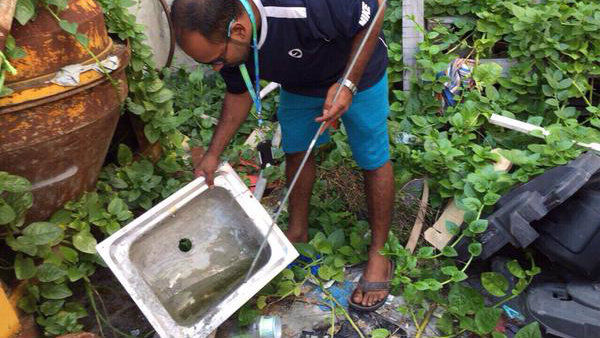Second death reported in dengue outbreak
A seven-month old infant died from dengue fever on Wednesday – the second death from the mosquito-borne disease this year.

12 May 2016, 09:00
A seven-month old infant died from dengue fever on Wednesday – the second death from the mosquito-borne disease this year.
The boy died at Malé’s Indhira Gandhi Memorial Hospital despite nine days of treatment at the intensive care unit, a spokeswoman for the state-owned hospital said.
A 35-year old woman died from dengue on the island of Faresmaathoda in Gaaf Dhaalu Atoll last week.
Dengue causes high temperatures, severe pain, headaches and rashes and, in its most severe form (dengue haemorrhagic fever) internal bleeding, vomiting and death.
Become a member
Get full access to our archive and personalise your experience.
Already a member?
Discussion
No comments yet. Be the first to share your thoughts!
No comments yet. Be the first to join the conversation!
Join the Conversation
Sign in to share your thoughts under an alias and take part in the discussion. Independent journalism thrives on open, respectful debate — your voice matters.




